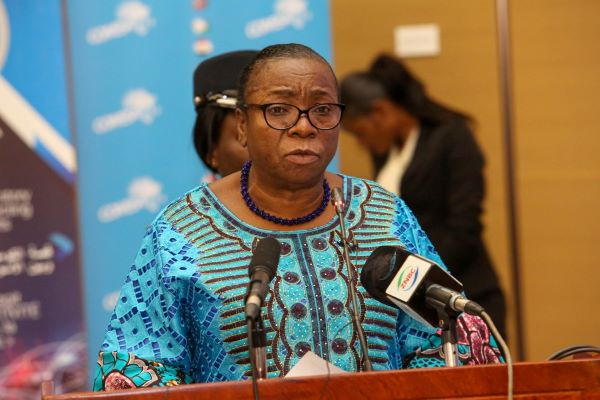Common Market for Eastern and Southern Africa member states should innovate strategies and fight threats of food insecurity spurred by climate change and other headwinds while striving to build resilience and adaptation, Zambia’s Vice President Mutale Nalumango has warned.
Officiating at the Comesa regional council of ministers meeting in Lusaka, Vice President Nalumango recognizes the impact of climate change on the progression of the economies of the member states and calls for steadfastness.
The current environment is characterised by surging commodity prices spurred by disruption of global supply chains, tightening of global financial conditions, and heightened market volatility associated with the current armed conflict in Europe.
The situation has induced severe fiscal and exchange rate pressure across many countries in the region heightened by the adverse impact of climate change which needs redress as it threatens food security.
Vice President Nalumango called for unity of purpose and to build resilience in all economies threatened by the headwinds as the world seeks to recover from the threats of the COVID 19 and the recurring climatic change effects.
The surging commodity prices caused by disruption of global supply chains, tightening of global financial conditions, and heightened market volatility associated with the current armed conflict in Europe are other outcomes that pose danger to the safety and security of the people and food in the regional bloc.
“These challenges pose a risk to the gains that the region has made so far and pose a significant risk to food security.”
There is a dire need for Comesa to plan ahead, prioritise and focus on key areas that contribute to economic growth, based on key parameters, including trade and transit facilitation.
These are key in the implementation of interventions that promote the establishment of a regionally integrated, diversified and competitive production capacity anchored on agriculture, industry and services sectors.
“Prioritization should also be based on value addition, diversification, innovation and common regional standards, all with due consideration to protection of our environment.”
These efforts should be further implemented within the context of inclusiveness, participation, and sustainability to ensure that all sections of the society including women, youth and the vulnerable, are supported to have access and control over resources that have a clearly visible impact on human development.
The vice president-whose office oversees disasters in Zambia, reminded the council of ministers, as an important organ, to remain vigilant and guard against the risks posed by climate change and other factors.
There is an urgent need to ensure all regional programmes under the ‘resilience through strategic digital economic integration.’ Are implemented without further delay.
Cooperating partners and all ‘friends of the region’ were recognized for their invaluable support towards the attainment of the regional integration agenda over the years, and have made headways despite not fully actualizing.
Ms. Nalumango commended the Comesa Secretariat for steering the regional 2021-25 Medium Term Strategic Plan that has continued rolling the regional integration agenda arguably to attain a free trade area-the hallmark of the growth of economies of member states, despite some unforeseen shocks
The immense potential of the Comesa free trade area has been exhibited by the increased intra-regional trade as a share of their total trade, evidenced by the ratio of intra-Comesa trade to global trade.
This effort has been made possible despite the threats posed by the COVID-19 pandemic which amongst others disrupted global value chains.
There is however need to recognize some key digital instruments-online non-tariff barriers system, and the Comesa electronic certificate of origin-being piloted to aid cross border traders to smoothen the flow of trade.
There further need to develop infrastructure as a driver of the intended integration as provided for under the comesa transport policy which has been supported through regional physical connectivity and facilitation of smooth provision of transport services.
The initiative is premised on a regionally agreed regulatory, administrative and operational environment based on the corridor framework to contribute towards productive integration, guided by the region’s policy.
In an effort to contribute to productive integration, industrialisation strategy, there are various programs underway to necessitate inclusive industrialization, private sector development.
The initiative ultimately seeks to build the capacity of small and medium scale enterprises, investment promotion and agriculture covering plant, livestock, fisheries, and related activities in support of the comprehensive African agricultural development programme.
Ultimately this, when attained, will bolster agricultural productivity and production in the region with additional programme activities aimed at improving access to markets focused on sanitary and PhytoSanitary and Standards are also being implemented.
Comesa needs to leverage the existence of the African Continental Free Trade Area to strengthen value-addition and industrial growth, and to increase digitization to continue to play an important role in the economies of the region.









